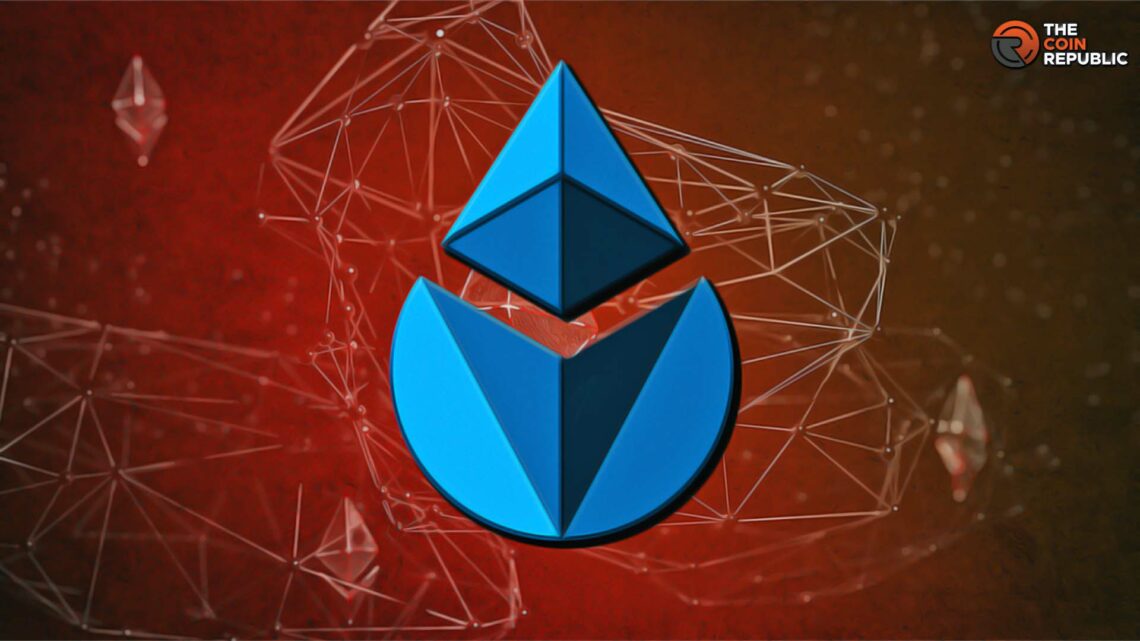- 1 Reduction of Lido’s centralization through governance changes.
- 2 Staking rewards model altered to direct portion to LDO, benefiting token utility.
- 3 Shapella milestone for Lido, strengthening position as leading staking protocol.
Lido Finance’s Eth staking protocol underwent a major upgrade called Shapella in January 2023. This resulted in Lido’s decentralization, security, and staking rewards distribution.
Maintaining the Majority of Rewards for stETH Holders
The most significant governance change under Shapella was reducing the veto power previously held by the Lido DAO Agent multisig. Critical parameters can now only be changed through a regular DAO proposal process with no special veto rights. This decentralizes decision-making and reduces reliance on a central authority.
Moreover, the protocols are guided by the Memorandum of Understanding that financially rewards whistleblowers who report bugs or vulnerabilities. This incentivizes more “eyes” to audit the code for security issues. Shapella also introduced smart contract improvements and formal verifications to reduce technical risks.
In terms of staking rewards, the ETH Shapella upgrade altered the distribution model. Previously 100% of rewards went to stETH holders. Now 10% is directed to LDO holders, boosting the utility of the LDO token. Meanwhile, the remaining 90% still flows to stETH holders to maintain yield.
The upgrade introduced stETH burning as another reward for LDO holders. When ETH is withdrawn from Lido, a portion of stETH will be burned proportional to withdrawal fees. This puts deflationary pressure on stETH and makes LDO more valuable long-term.
The Shapella Upgrade: Paving the Way for Lido’s Role in Ethereum’s Future
Shapella established an insurance fund to cover slashing risks if Lido validators are penalized
for downtime or misbehavior. The fund is capitalized through a small portion of protocol fees and acts as a safeguard against losses.
Regarding centralization risks, the top 10 validators previously controlled over 50% of staked Ether. Shapella limits any single validator’s share to 5%, promoting greater decentralization. The validator onboarding process was also improved by removing identity verification requirements.
While sharding is still in development, Lido conducted mock sharding exercises to demonstrate its technical readiness. This is meant to assure users that Lido can handle Ethereum’s upcoming transition to shard chains without disruptions.
Analysts see the Shapella upgrade as a milestone for Lido. Decentralization was enhanced through governance changes and technical improvements aimed at reducing risks and promoting stability. The new staking rewards model provides fundamental utility and demand drivers for LDO. As the leading liquid staking solution, Lido is now well-positioned for Ethereum’s long-term roadmap.
In Conclusion, Lido’s Shapella upgrade introduced meaningful decentralization of power, security audits, staking reward changes to benefit LDO, validator limits adjustment, and sharding preparations. This demonstrates Lido’s continued evolution as a robust protocol for accessible Ethereum staking. The analysis indicates Shapella was a significant step forward on Lido’s development roadmap.

Andrew is a blockchain developer who developed his interest in cryptocurrencies while pursuing his post-graduation major in blockchain development. He is a keen observer of details and shares his passion for writing, along with coding. His backend knowledge about blockchain helps him give a unique perspective to his writing skills, and a reliable craft at explaining the concepts such as blockchain programming, languages and token minting. He also frequently shares technical details and performance indicators of ICOs and IDOs.


 Home
Home News
News







